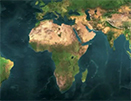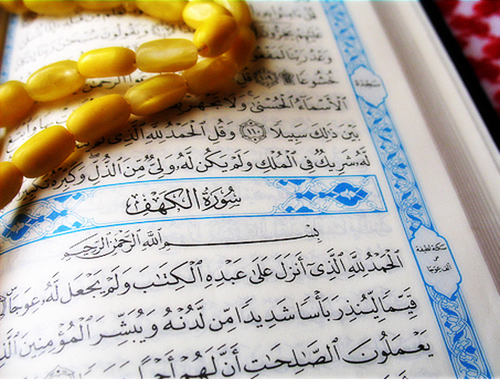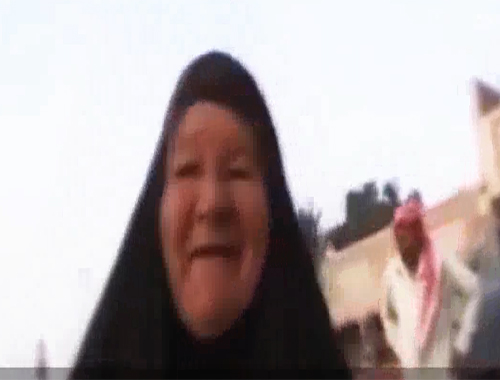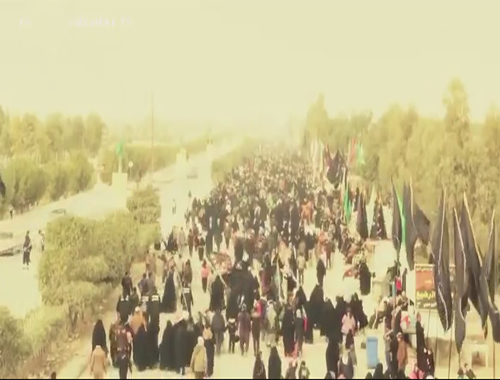Restrictions of Ihram
- Details
- Hits: 2872
Restrictions of Ihram
There are certain restrictions for the muhrim, most of which are discussed below.
Marriage
According to the Imamiyyah, Shafi'i, Maliki and Hanbali schools, it is not permissible for the muhrimto contract marriage for himself or on behalf of another. Also he may not act as another's agent for concluding a marriage contract, and if he does, the contract is invalid.
Furthermore, according to the Imamiyyah school, he may not act as a witness to such a contract.
According to Abu Hanifah, marriage contract is permissible and the contract concluded is valid.
According to the Hanafi, Maliki, Shafi`i and Imamiyyah schools, it is permissible for the muhrimto revoke divorce of his former wife during the period of her `iddah. According to the Hanbali school, it is not permissible. From the viewpoint of the Imamiyyah, if one enters a marriage contract with the knowledge of its prohibition, the woman becomes haramfor him for life merely by the act of concluding the contract, even if the marriage is not consummated. But if done in ignorance of the interdiction, she is not prohibited to him, even if consummation has been affected. (al‑Jawahir Fiqh al‑Sunnah; al‑Fiqh `ala al‑madhahib al‑'arba`ah ).
Intercourse
All the five legal schools agree that it is not permissible for the muhrimto have sexual intercourse with his wife, or to derive any kind of sexual pleasure from her. If he performs intercourse before tahlil [9] (i.e. relief from the state of ihram)his Hajj becomes void, although he must perform all its acts to the conclusion. Thereafter, he must repeat the Hajj the next year, performing it `separately' from his spouse. [10] The seclusion is obligatory according to the Imamiyyah, Maliki and Hanbali schools, and voluntary from the viewpoint of the Shafi'i and Hanafi schools. (al‑Hada'iq; Fiqh al‑Sunnah).
Moreover, according to the Imamiyyah, Shafi'i, and Maliki schools, besides the fact that his Hajj becomes invalid, he must sacrifice a camel in atonement, and according to the Hanafi school, a sheep.
All the five legal schools agree that if he commits intercourse after the first tahlil (i.e. after the halq or taqsir in Mina, after which everything except intercourse‑‑and also perfume according to the Imamiyyah school‑‑become permissible for the pilgrim), his Hajj is not void, nor is he called upon to repeat it. Nevertheless, he must offer a camel, according to the Imamiyyah and Hanafi schools and according to one of the two opinions ascribed to al‑Shafi'i. But according to the Maliki school, he is obliged to offer a sheep only. (al‑Hada'iq; Fiqh al‑Sunnah).
If the wife yields willingly to intercourse, her Hajj is also void, and she must sacrifice a camel in expiation and repeat the Hajj the year after. But if she was forced, then nothing is required of her, but the husband is obliged to offer two camels: one on his own behalf, and the second on hers. If the wife was not in the state of ihram, but the husband was, nothing is required of her, nor is she obliged to offer anything in atonement, nor is anything required of the husband on her account. (al‑Tadhkirah).
If the husband kisses his wife, his Hajj is not void if it does not result in ejaculation. On this all schools are in agreement. But according to the four Sunni schools, he is obliged to make a sacrificial offering in atonement even if it be a sheep. The Imamiyyah author of al‑Tadhkirah says, the sacrifice of a camel is obligatory only if the kiss is taken with sexual desire, otherwise he should sacrifice only a sheep. If he ejaculates, the Hajj is void according to the Maliki school, but remains valid according to the other schools, although he should make an offering in atonement, which is a camel according to the Hanbali school and a group of Imamiyyah legists, and a sheep according to the Shafi'i' and Hanafi schools. (al‑Hada'iq; al‑Mughni).
Use of Perfume
All the legal schools agree that the muhrim, man or woman, may not make use of any perfume, either for smelling, or for applying on himself, or for scenting edibles. Indeed it is not permissible to wash the dead body of a muhrim, nor to perform hunut upon it by applying camphor or any other kind of perfumery. If the muhrimuses perfume forgetfully or on account of ignorance, he needs not make any offering in atonement according to the Imamiyyah and Shafi'i schools. But according to the Hanafi and Maliki schools, he must make a sacrificial offering (fidyah). In this relation two different opinions are ascribed to Ahmad ibn Hanbal.
However, when one is forced to use perfume on account of disease, it is permissible and no fidyahisrequired. According to the Imamiyyah school, if one uses perfume intentionally, he must offer a sheep, irrespective of the use, whether applied to the body or eaten. However, there is nothing wrong in the Khaluq of Ka'bah even if it contains saffron, and the same applies to fruits and aromatic plants. (al‑Jawahir).
Use of Kohl
Al‑Tadhkirah states: "There is consensus among the Imamiyyah legists on the point that darkening the eyelids with kohl or applying a kohl containing perfume is not permissible for the muhrim, man or woman. Apart from that (i.e. ihram)it is permissible." According to the author of al‑Mughni, "Kohl containing antimony is makruh, and does not require any fidyah. I haven't come across any different opinion on this topic. However, there is no karahah in use of kohl without antimony, as long as it does not contain any perfume."
Shortening of Nails and Hair; Cutting of Trees
All the five legal schools agree about impermissibility of shortening the nails and shaving or shortening of the hair of the head or the body in the state of ihram, fidyah being required of the offender. [11] As to cutting of trees and plants within the haram, all the legal schools agree that it is impermissible to cut or uproot anything grown naturally without human mediation. Al‑Shafi'i' states that there is no difference between the two with regard to the prohibition, and fidyah isrequired for both: cutting of a big tree requires fidyah of a cow, and of other plants of a sheep. According to Malik, cutting of a tree is a sin, though nothing is required of the offender, regardless of whether it has grown with or without human mediation.
According to the Imamiyyah, Hanafi, and Hanbali schools, cutting of something planted by human hands is permissible and does not require a fidyah; but anything grown by nature requires fidyah, which is a cow according to the Imamiyyah for cutting a big tree and a sheep for cutting smaller plants. According to the Hanafi school, the owner of the tree is entitled to a payment equivalent to the cost of the hady. (Fiqh al‑Sunnah, al‑Lum`ah)
All the five schools agree that there is no restriction for cutting a dry tree or for pulling out withered grass.
Looking into a Mirror
It is not permissible for a muhrimto look into a mirror, and all the five schools agree that there is no fidyah for doing so. However, there is no restriction on looking into water.
Use of Henna
According to the Hanafi school, it is permissible for the muhrim, man or woman, to dye with henna any part of his body, except the head. According to the Shafi`i school, it is permissible, with. the exception of hands and feet. According to the Hanafi school, dyeing is not permissible for the muhrim, man or woman. (Fiqh al‑Sunnah)The predominant view among the Imamiyyah legists is that dyeing is makruh not haram. (al‑Lum`ah)
Use of Shade; Covering the Head
All the five schools agree that it is not permissible for the muhrimman to cover his head voluntarily. According to the Maliki and Imamiyyah schools, it is not permissible for him to immerse himself under water until the head is completely submerged, although it is permissible for him, all the five schools except the Shafi'i agree, to wash his head or pour water over it. The Malikis say that with the exception of the hands it is not permissible to remove dirt by washing. If he covers the head forgetfully, nothing is required of him according to the Imamiyyah and Shafi'i schools, but a fidyah isrequired according to the Hanaf i school.
All the schools, with the exception of the Shafi'i, agree that it is impermissible for the muhrimto shade himself while moving. Neither it is permissible for him to ride an automobile, an aeroplane or the like, which are covered by a roof. But it is permissible while walking to pass under a shadow. [12] If one needs shadow in case of exigency, such as illness or intense heat or cold, it is permissible, but a kaffarah isrequired according to'the Imamiyyah school. All the five schools agree that it is permissible for the muhrimwhen stationary in a place to be under the shade of a roof, wall, tree, tent, etc. According to the Imamiyyah school, it is permissible for a woman to use shadow while moving about. (al‑Tadhkirah)
Stitched Clothing and Ring
All the five schools agree that it is forbidden for the muhrimman to wear stitched clothes and clothes which encircle body members, e.g. turban, hat and the like. These are permissible for women, with the exception of gloves and clothes which have come into contact with perfume. According to the Imamiyyah school, if the muhrim wears stitched clothes forgetfully, or in ignorance of the restriction, nothing is required of him. But if one wears them intentionally to protect himself from heat or cold, he should offer a sheep. Also according to them it is not permissible to wear a ring for adornment, but it is permissible for other purposes. Also, it is not permissible for woman to wear jewelry for the sake of adornment.
`Fusuq' and Jidal'
God, the most Exalted, says in the Quran: ...Ùلا رÙØ« Ùˆ لاÙسوق Ùˆ لاجد ال ÙÛŒ الØج ... `...There should be no obscenity, neither impiety, nor disputing in Hajj ....' (2:197).
In the above verse, the meaning of `rafath' is taken to be sexual intercourse, to which reference has been made earlier. `Fusuq'is taken to mean lying, cursing, or commission of sins. In any case, all of them are forbidden for the pilgrims of Hajj and the non‑pilgrims as well. The stress here is meant to emphasize abstention from them in the state of ihram. The meaning of jidal' is quarrelling. According to an Imamiyyah tradition from al‑'Imam al‑Sadiq (`a), he is reported to have said, "It (i.e. jidal' in the above‑mentioned verse) means using such expressions as `Yes, by God!' or `No, by God!' in conversation. This is the lowest degree of jidal"
According to the Imamiyyah school, if the muhrim tells a lie for once, he must offer a sheep; if twice, a cow; if thrice, a camel. And if he swears once taking a veritable oath, there is nothing upon him; but if he repeats it three times, he is obliged to sacrifice a sheep.
Cupping (Hijamah)
All the five schools agree on permissibility of cupping in case of necessity, and the four Sunni schools permit it even when not necessary as long as it does not require removal of hair. The Imamiyyah legists disagree on this issue; some of them permit it and others not. (al‑Tadhkirah; al‑Fiqh `ala al‑madhahib al‑'arba`ah)
Hunting (al‑Sayd)
All the five schools are in agreement about the prohibition on hunting of land animals, either through killing or through dhabh, and also on guiding the hunter or pointing opt the game to him in the state of ihram. Also prohibited is meddling with their eggs and their young ones. However, hunting of the animals of water is permitted and requires no fidyah. This, in accordance with the Qur'anic verse:
اØÙ„ Ù„Ú©Ù… صید البØر وطعامه متاعا Ù„Ú©Ù… Ùˆ للسیاره Ùˆ Øرم علیکم صید البر ما دمتم Øرما Ùˆ اتقوا الله الذی الیه تØشرون
Permitted to you is the game of the sea and the food of it, as a provision for you and for the journeyers; but forbidden to you is the game of the land, so long as you remain in the state ofihram: and fear God, unto whom you shall be mustered. (5:96)
The prohibition on hunting within the precincts of the haram apply to the muhrim and the non‑muhrim (muhill) equally. However, outside the haram, the prohibition applies only to the muhrim. If the muhrim slaughters a game, it is considered maytah (a dead animal not slaughtered in accordance with ritual requirements), and its flesh is unlawful for all human beings. The five legal schools agree that the muhrim may kill a predatory bird called hada'ah, crows, mice and scorpions. Others include wild dogs and anything harmful.
According to the Imamiyyah and Shafi'i schools, if the game hunted on land resembles some domestic beast in shape and form (like the oryx, which resembles the cow), he has the choice between: (1) giving the meat of one of similar beasts of his livestock in charity after slaughtering it; (2) estimating its price and buying food of the amount to be given in expiation and charity to the needy, distributing it by giving two mudds (the muddis a dry measure equal to 800 grams) to every individual; (3) fasting, a day for every two mudds.
The Malikis hold the same viewpoint, except that, they add, the price of the hunted animal itself should be estimated, not that of its domestic equivalent. The Hanafis say that one who hunts in the state of ihramshould arrange for the estimated price of the hunted animal, whether there is a domestic animal similar to it or not. When the price has been estimated, he is free to choose between: (1) purchasing livestock of the money and giving its meat away in charity; (2) giving it from his own livestock; (3) purchasing food of the amount to be given away in charity; (4) fasting, a day for every mudd of food to be given away. (al‑Tadhkirah; Fiqh al‑Sunnah)In this connection all the legal schools base their position on this Qur'anic verse
یا ایها الذین امنوا لاتقتلوا الصید Ùˆ انتم Øرم Ùˆ من قتله منکم متعمدا Ùجزاء مثل ما قتل من النعم ÛŒØÚ©Ù… به ذوا عدل منکم هدیا بالغ الکعبه او Ú©Ùاره طعام مساکین او عدل ذلک صیاما لیذوق Ùˆ بال امره عÙا الله عما سل٠و من عادÙینتقم الله منه Ùˆ الله Ùˆ عزیز ذو انتقام
O believers, slay not the game while you are in the state ofihram. Whosoever of you slays it willfully, there shall be reparation‑‑the like of what he has slain, in livestock, as shall be judged by two men of equity among you, as offering on reaching the Ka`bah; or expiation‑‑food for poor persons or the equivalent of that in fasting, so that he may taste the mischief of his action. God has pardoned what is past; but whoever offends again, God will take vengeance on him; God is All‑mighty, Vengeful. (5:95)
The meaning of the phrase ÛŒØÚ©Ù… به ذوا عدل in the above verse is that two equitable (`adil)witnesses should judge whether a certain domestic animal is similar to the hunted wild beast. The meaning of the phrase هدیا بالغا الکعبه is that he should slaughter the equivalent livestock and give its meat in charity on arrival in Makkah.
According to the Imamiyyah work al‑Shara'i`, "Every muhrimwho wears or eats anything forbidden for him should slaughter a sheep, regardless of whether his action was intentional, forgetful, or on account of ignorance."
The Imamiyyah and Shafi'i schools agree that no expiation (kafarah)is required of someone who commits a haram act forgetfully or in ignorance, except in the case of hunting, in which case even killing by mistake requires kaffarah.
The Limits of the Harams of Makkah andof Al‑Madinah:
The prohibition of hunting and cutting of trees applies both to the haramof Makkah and that of al‑Madinah. According to Fiqh al‑Sunnah, the limits of the haramof Makkah are indicated by signs in five directions, which are one‑meter‑high stones fixed on both sides of the roads. The limits of the haramof Makkah are as follows: (1) the northern limit is marked by al‑Tan'im, which is a place at a distance of 6 kms. from Makkah; (2) the southern limit is marked by Idah, 12 kms. from Makkah; (3) the eastern limit is al‑Ja'ranah, 16 kms. from Makkah; (4) the western limit is al‑Shumaysi, 15 kms. from Makkah.
The limits of the haramof the Prophet's shrine extend from `Ir to Thawr, a distance of 12 kms. `Ir is a hill near the miqat, and Thawr is a hill at Uhud.
Al‑`Allamah al‑Hilli, an Imamiyyah legist, states in his work al‑Tadhkirah that "the haramof Makkah extends over an area of one band by one band (1 band =12miles), and the haramof al‑Madinah extends from `Ayir to `Ir. [13]
Notes:
[1]. Dhu al‑Hulayfah, nowadays known as Bi'r `Ali or Abyar `Ali, is at a distance of about 486 kms. from Makkah to the north and 12 kms. from al‑Madinah. (Tr.)
[2]. Al‑Juhfah, lies a distance of about 156 kms. from Makkah to the north‑west. (Tr.)
[3]. There are three points in the valley of al‑`Aqiq, 94 kms. from Makkah in the north‑east, from where ihramis assumed: al‑Maslakh, al‑Ghamrah, and Dhat al‑`Irq. According to the Imamiyyah fuqaha', it is permissible to assume ihramfrom any of these points, though al‑Maslakh is considered best, then al‑Ghamrah, and then Dhat al-Irq. (Tr.)
[4]. Yalamlam is a mountain of the Tahamah range, lying at a distance of 84 kms. from Makkah (Tr.)
[5]. Qarn al‑Manazil, the miqat for those coming from al‑Ta'if, lies at a distance of 94 kms. east of Makkah.
[6]. According to the Hanafi school, bringing along of hady substitutes the talbiyah, as mentioned by Ibn `Abidin and the author of Fath al‑Qadir.
[7]. "Ish'ar" here means slitting the right side of the camel's hump. By "taqlid" is meant the hanging of an old horseshoe in the neck of the hady, which is meant to identify the sacrificial animal as such.
[8]. The nal has a sole, but is devoid of the covering on the sides and the back of the foot at the heels. The khuff is the common shoe, which covers the foot on the sides and the heels.
[9]. After performing ramy al jamarat and halq, everything except intercourse and perfume becomes permissible to the pilgrim‑‑such as wearing of stitched clothes and other things. This is called al‑hill al‑'awwal (or "the first relief" from the restrictions of ihram). After the last tawaf all things including intercourse become permissible to him. This "second relief”‑‑to be explained later‑‑is called al‑hill
al‑thani.
[10]. According to al‑Tadhkirah, It is necessary during the next Hajj that the `separation' should take place from the point where the misdemeanour was committed during the first Hajj. The meaning of `separation' (tafriq)is that the two should not be alone together without there being present a third muhrim, whose presence acts as a deterrent.
[11]. According to the Imamiyyah, the kaffarah for cutting a single nail is giving one mudd (800 grams) of food in charity. If all the nails of fingers and toes are cut in one sitting, the kaffarah isone sheep, but if done in several sittings, it is sacrifice of two sheep.
[12]. The author of al‑Tadhkirah ascribes impermissibility of shadowing oneself while moving to Abu Hanifah, and the author of Rahmat al‑'ummah ascribes to him permissibility.
[13]. Al‑Mughnistates, "Those knowledgeable about al‑Madinah do not know of any Thawr or `Ir," but it is possible that names have changed with time.











